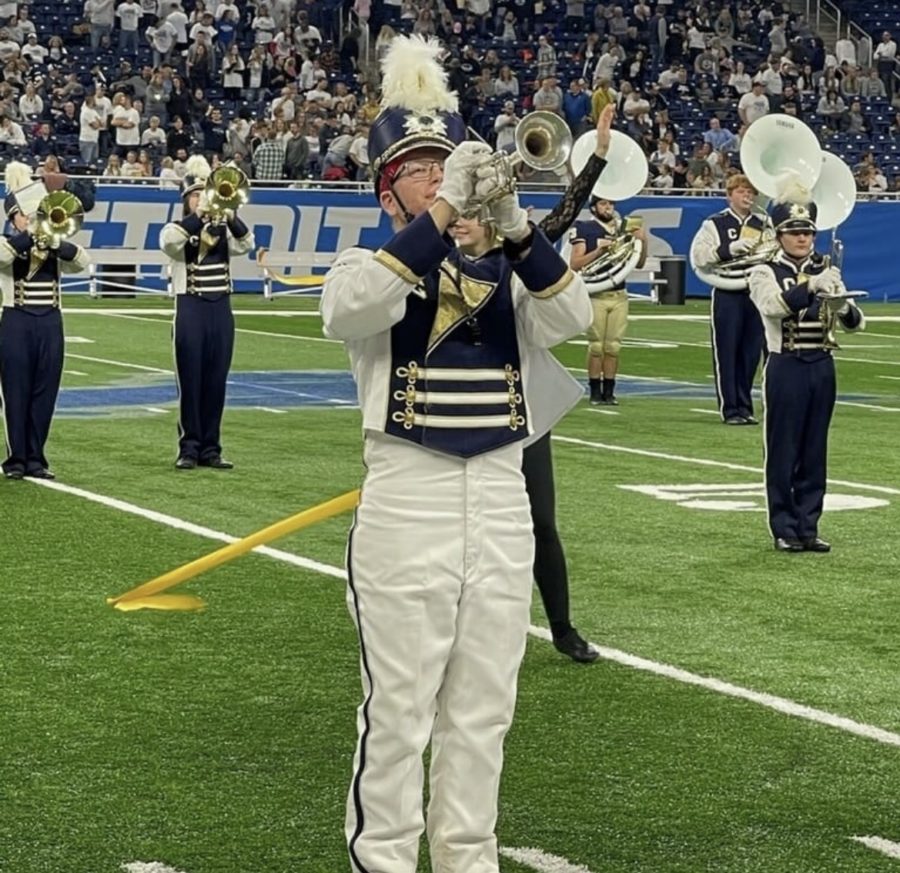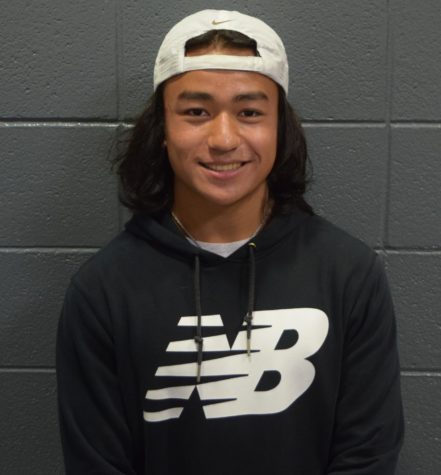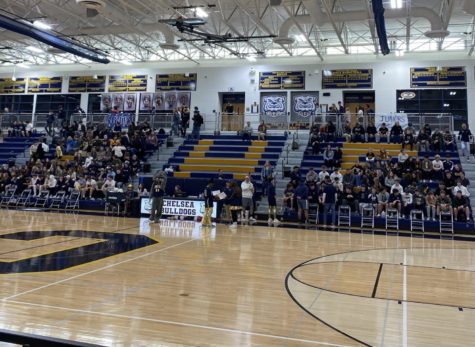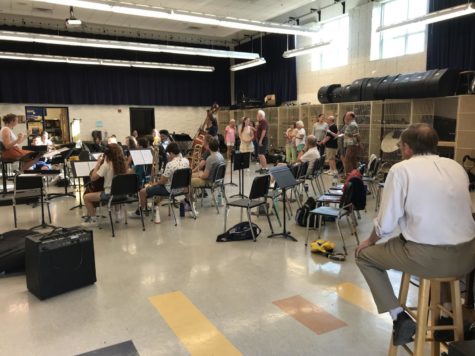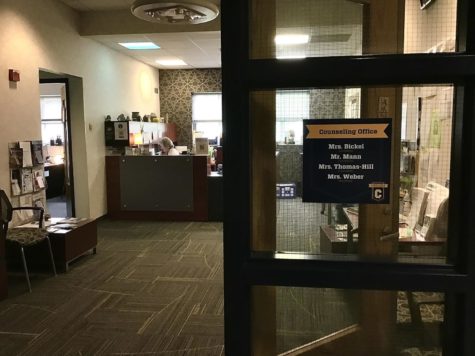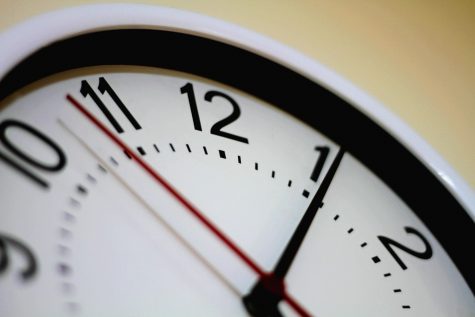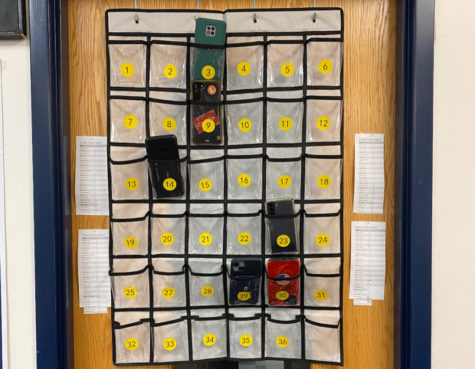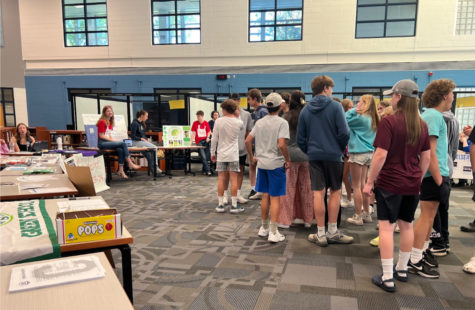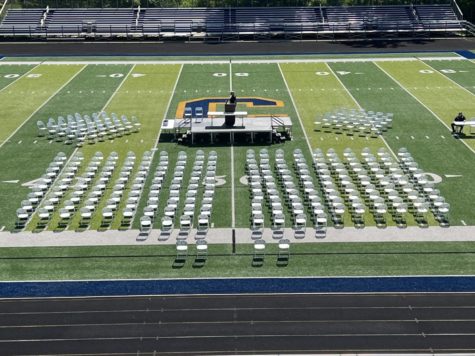A Not-So-Virtual Solo and Ensemble
This year, the CHS band and orchestra held Solo and Ensemble (S&E), a yearly music festival, as a virtual event similar to the previous year. However, unlike the year prior, students were provided an opportunity for instant in-person feedback.
The format of this year’s S&E was very similar to last year’s process of recording individual or ensemble pieces then submitting them to be judged by a clinician.
“Each event was recorded then submitted virtually along with scores and copyright information,” CHS orchestra director Phillip Sylvester said. “Students then received their scores and comments from the clinician the performance was sent to.”
S&E was originally planned to be in person this year but was switched to virtual format shortly before the event, causing some challenges.
“The change to virtual was somewhat last minute,” Sylvester said. “We thought it was going to be in person, so we had to re-register everyone for the event and scan everyone’s scores.”
Given the short notice, both band and orchestra provided a day for students to record their final submissions.
“We held the recording sessions here at Chelsea High School,” Sylvester said. “We used the stage and the choir room to record, then switched so the band could record on the stage as well.”
Last year, the online format caused the scores and comments sent by judges to be delayed for a long time, prompting a change in this year’s proceedings.
“Mr. Sylvester and I really wanted there to be a live component this year because the feedback was so delayed last year,” CHS band director Alison Roberts said. “So we hired clinicians to listen to the students at the same time we were recording.”
The orchestra brought in one clinician, Mrs. Lee, to give the students feedback on their performances.
“I brought her in because she [was] very motivating and positive,” Sylvester said. “There was only a little time left after each student or ensemble performed, so there was no time for heavy critique.”
In contrast, the band brought in three clinicians, one for percussion, brass, and woodwinds due to the significant differences in each family of instruments.
“It’s really valuable for students to hear feedback from someone who isn’t me or their current teacher,” Roberts said. “I think it’s a skill to be able to perform, especially under pressure, and having a live clinician adds that aspect.”
Having that live performance aspect with the clinicians added a bit of normality known before the pandemic to this year’s S&E.
“The goal of the event this year was to make it the most similar as possible to a normal year,” Roberts said. “One big difference was the people; there are usually students from across the state at S and E but this year we only had Chelsea students.”
S&E will most likely return to in-person performance next year. However, according to Sylvester, the influence of virtual S&E could lead to some positive changes in the future.
“I think the recording sessions on stage this year went well,” Sylvester said. “In the future, I plan to have students do a recording session prior to solo and ensemble even when it returns to normal.”
These recording sessions would provide students with a marker of their achievement in learning and practicing their pieces and provide students with a form of performance experience to help prepare for the audition itself–as they did this year.
“We have a rotating schedule for students to meet with their ensembles during class,” Roberts said. “Soloists are expected to prepare on their own outside of class.”
But not all preparation is individual or group rehearsal time; learning their music is a long process that students undertake over several weeks.
“Students mostly learn the music on their own,” Sylvester said. “However, Mr. Peters and I do work with all the different ensembles and bring in coaches to help with the music, similar to the band.”
Overall, S&E was a success this year despite it being in a virtual format and having an abrupt change in the planned proceedings.
“I think the students did really well,” Sylvester said. “I’m glad that they put in the effort and hard work even though it wasn’t the same as in a normal year.”

